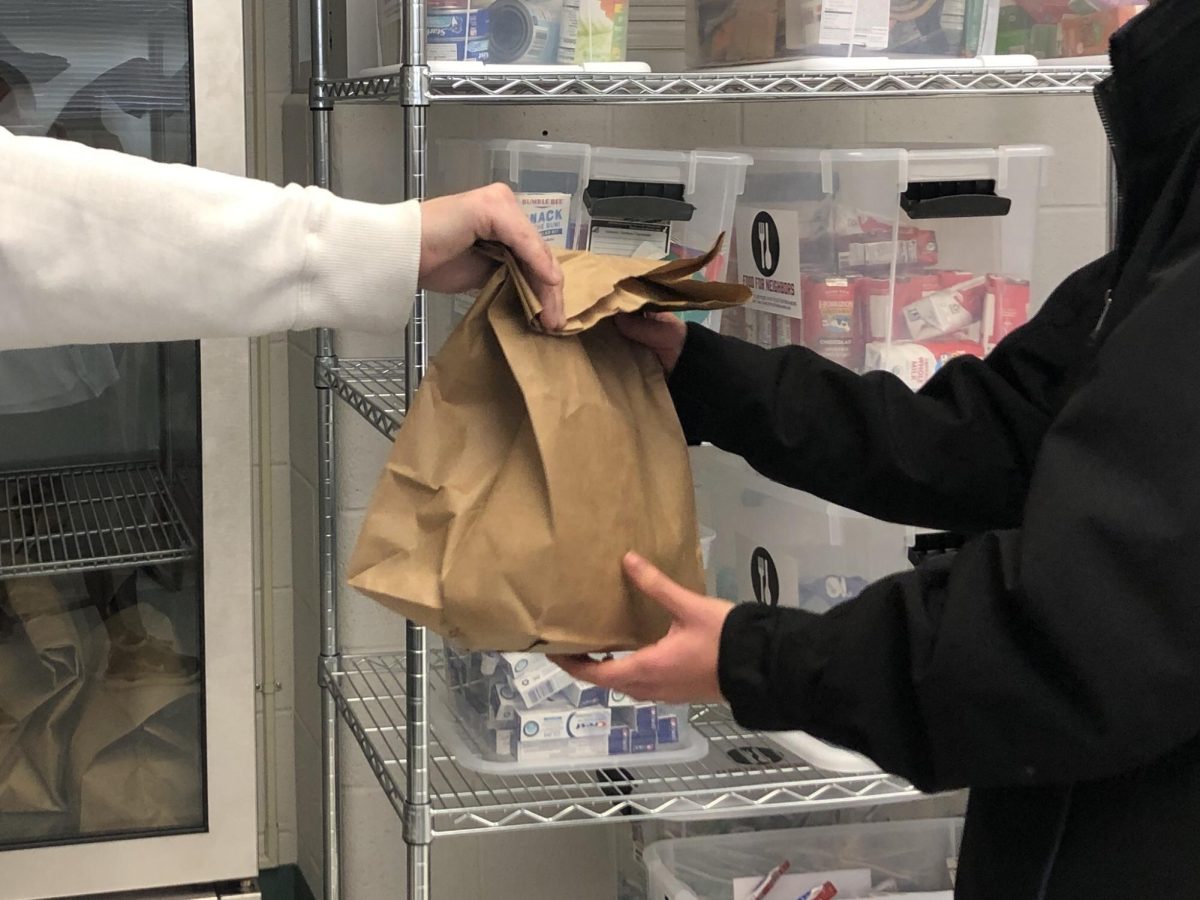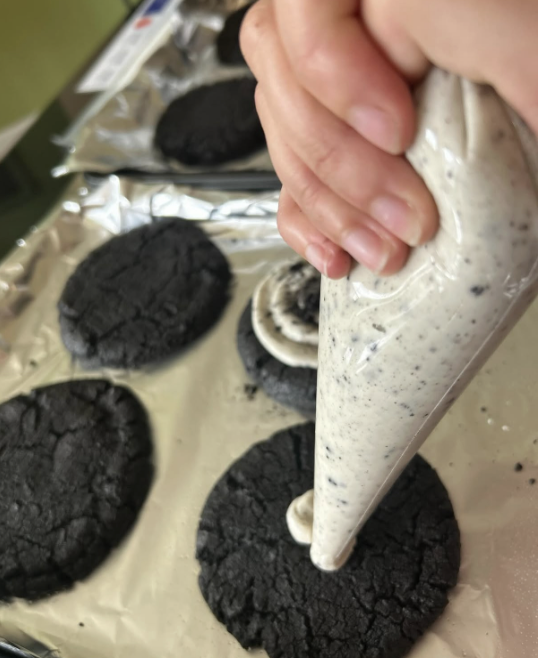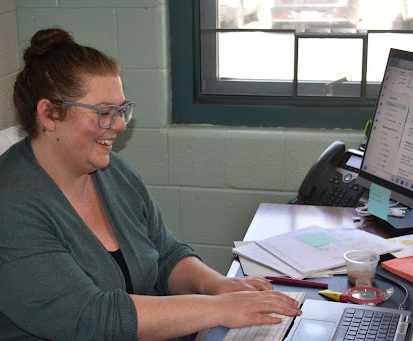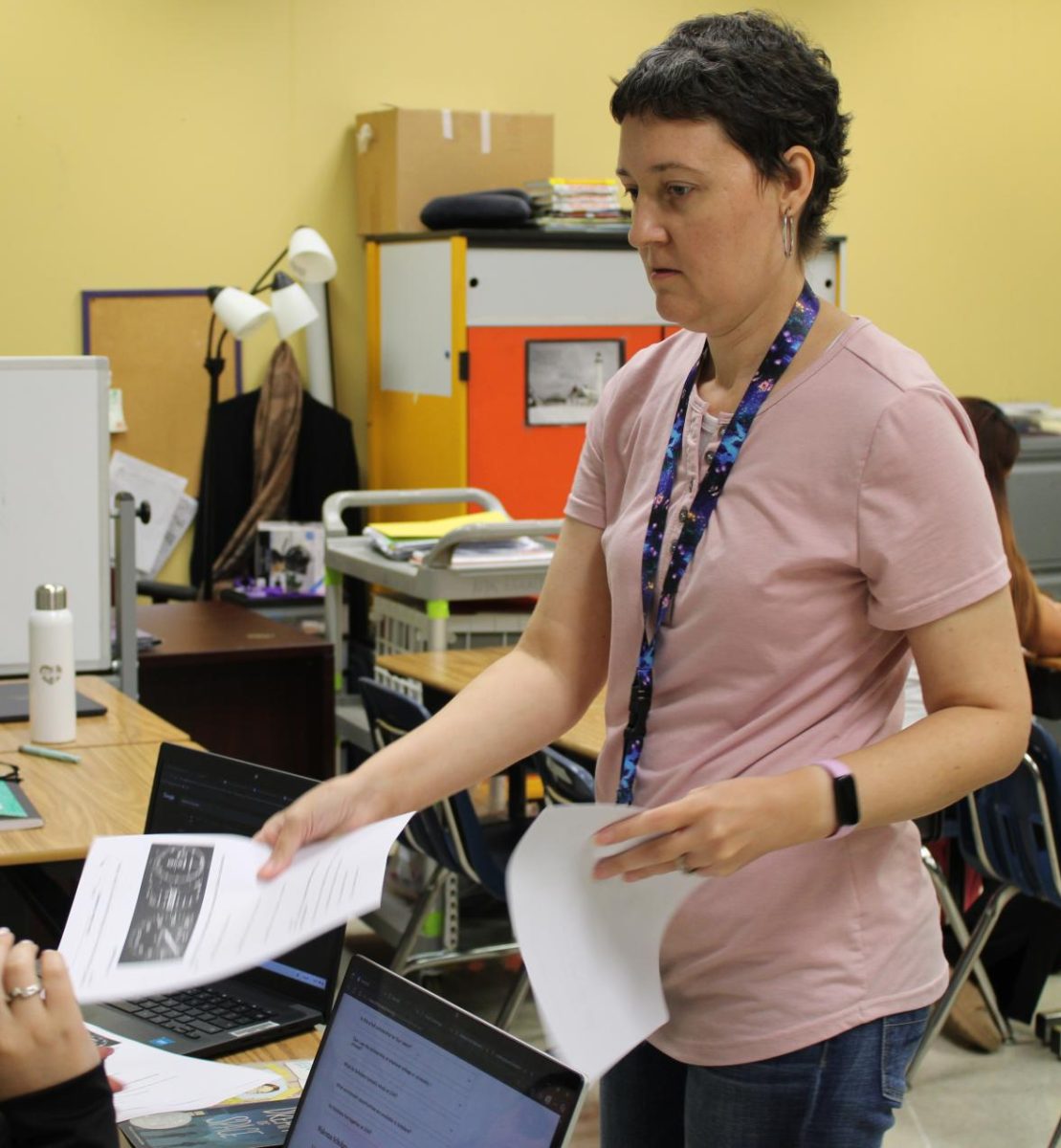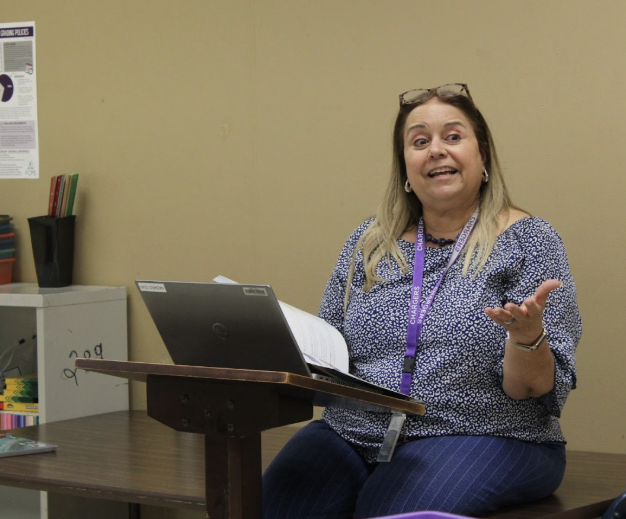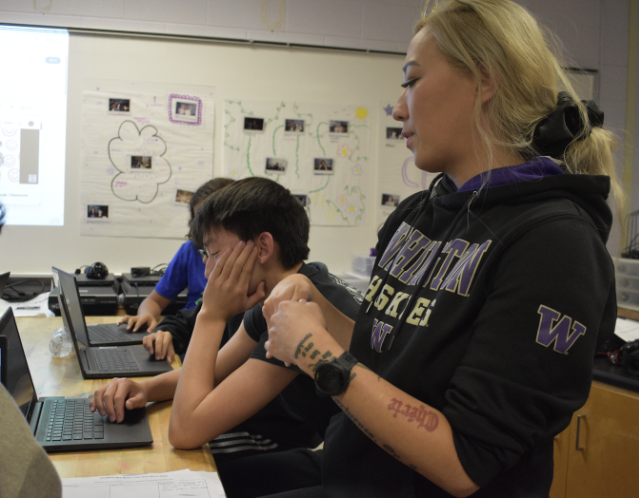On any given Friday afternoon, about 60 students leave their seventh or eighth period classes to pay a quick visit to the parent liaisons’ office. The students are handed a paper bag and choose items from the shelves of food that line the walls around them.
Developed by a former social worker, CHS’s weekend grab bags are now primarily social worker Nick Thayer’s responsibility, though he doesn’t manage the project alone. Other social workers, parent liaisons, volunteers from outside FCPS and others all pitch in.
Since no funding is allocated by the district to this program, all resources are donated. CHS receives weekly deliveries from Western Fairfax Christian Ministry (WFCM) and about every other month from Food For Neighbors, a local food donation service. In addition, to kick off their involvement with the program, WFCM donated their 11th fridge to a FCPS school and it sits in the office today. WFCM uses money from a grant specific to this program to both purchase and stock its fridges.
While there are some recurring items that appear in most grab bags, Mason works to incorporate variety in his shopping list. Because of his close work with school officials, he has the opportunity to take feedback on the items he supplies.
“We try to keep some type of milk on the list, fresh fruit and we rotate between cheese sticks and yogurt,” Mason said. “But we also do other items throughout the year, maybe like individual pizzas or deli meat to try to give it a little bit of variety. It is a team effort, but I do have input since I get to see some of the counselors and family liaisons and so we try to coordinate and see what students want.”
Once the food is delivered, CHS social workers, parent liaisons and former liaison, current college and career specialist, Margarita Rodriguez work together to sort food by category and prepare grab bags.
“My role in that was to be present during the weekend grab bag and to speak to families about the weekend grab bag and have them not only see the place but make sure their student knew about the weekend grab bag,” Rodriguez said.
Then, Thayer writes passes for that week’s grab bag recipients which rotate by grade level. He allows teachers the freedom to determine what time students should use their passes based on that day’s lesson plan.
“We try to get to everybody in Chantilly because we don’t want there to be a stigma and we don’t want people to know who our lower-income students are,” Thayer said. “That being said, there are students who have requested to come and get one more often, so we set times for them to come when the rest of the students are not, so they don’t feel any shame for being low-income or anything like that.”
Thayer schedules for grab bag pickup to take place starting at 2:30 p.m. He says recommendations from other schools led him to avoid doing so at dismissal so all students who needed them would remember to snag a grab bag.
“Students would just forget or they would have after school commitments,” Thayer said. “Once that final bell rings, students’ minds go to a different place. So we found that this was the most effective way to make sure the food was getting to the students that needed it.”
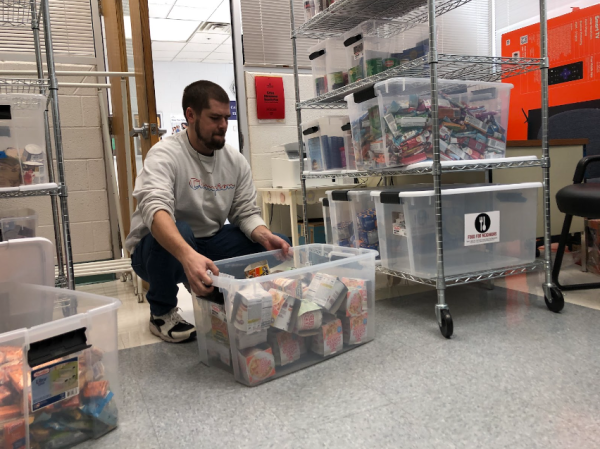
After a busy week of work, grab bag curators take the last 30 minutes of their Fridays to interact with their students as they come to grab their bags. Rodriguez says the time is a nice break from the stress of school when she can focus just on connecting with students.
“It’s actually my favorite time of the week and Mr. Thayer and I, we love to be part of this every Friday afternoon just because it’s a moment where we get to meet the kids and see them in a different light,” Rodriguez said. “We chat about the weekend, we chat about your week, so it’s a moment and a time and a place where we don’t always have to be that staff member and student. It makes them feel comfortable and we are able to build that connection with students and make them feel comfortable enough to express whatever they’re going through.”


